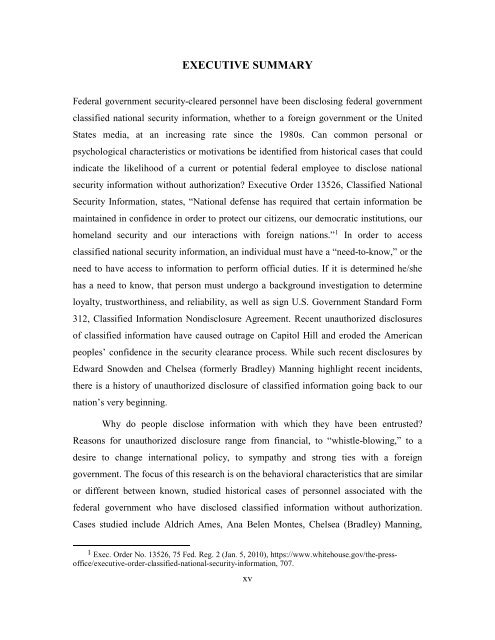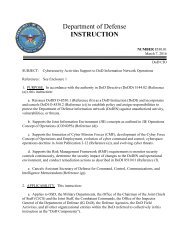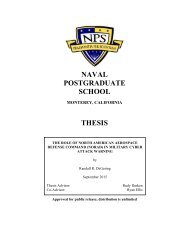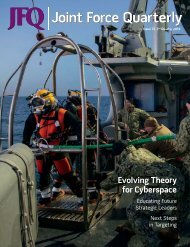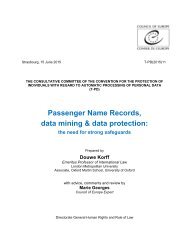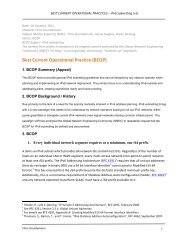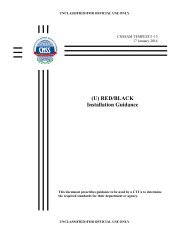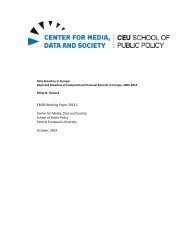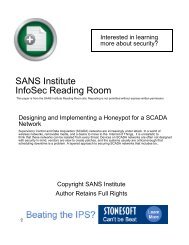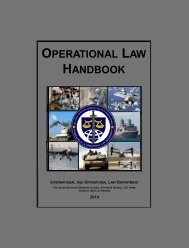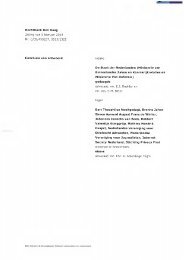SCHOOL THESIS
?view&did=768625
?view&did=768625
Create successful ePaper yourself
Turn your PDF publications into a flip-book with our unique Google optimized e-Paper software.
EXECUTIVE SUMMARY<br />
Federal government security-cleared personnel have been disclosing federal government<br />
classified national security information, whether to a foreign government or the United<br />
States media, at an increasing rate since the 1980s. Can common personal or<br />
psychological characteristics or motivations be identified from historical cases that could<br />
indicate the likelihood of a current or potential federal employee to disclose national<br />
security information without authorization? Executive Order 13526, Classified National<br />
Security Information, states, “National defense has required that certain information be<br />
maintained in confidence in order to protect our citizens, our democratic institutions, our<br />
homeland security and our interactions with foreign nations.” 1 In order to access<br />
classified national security information, an individual must have a “need-to-know,” or the<br />
need to have access to information to perform official duties. If it is determined he/she<br />
has a need to know, that person must undergo a background investigation to determine<br />
loyalty, trustworthiness, and reliability, as well as sign U.S. Government Standard Form<br />
312, Classified Information Nondisclosure Agreement. Recent unauthorized disclosures<br />
of classified information have caused outrage on Capitol Hill and eroded the American<br />
peoples’ confidence in the security clearance process. While such recent disclosures by<br />
Edward Snowden and Chelsea (formerly Bradley) Manning highlight recent incidents,<br />
there is a history of unauthorized disclosure of classified information going back to our<br />
nation’s very beginning.<br />
Why do people disclose information with which they have been entrusted?<br />
Reasons for unauthorized disclosure range from financial, to “whistle-blowing,” to a<br />
desire to change international policy, to sympathy and strong ties with a foreign<br />
government. The focus of this research is on the behavioral characteristics that are similar<br />
or different between known, studied historical cases of personnel associated with the<br />
federal government who have disclosed classified information without authorization.<br />
Cases studied include Aldrich Ames, Ana Belen Montes, Chelsea (Bradley) Manning,<br />
1 Exec. Order No. 13526, 75 Fed. Reg. 2 (Jan. 5, 2010), https://www.whitehouse.gov/the-pressoffice/executive-order-classified-national-security-information,<br />
707.<br />
xv


